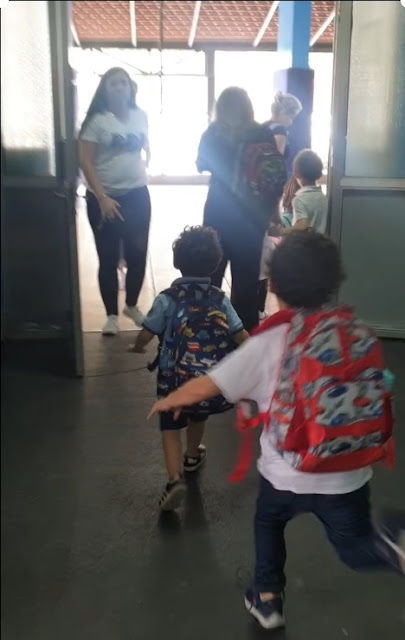First, a lesson in terminology. In the United States, “second
generation” refers to the U.S.-born children of foreign-born parents. As my
parents emigrated from Lebanon to the United States where my brothers and I
were born in the 1980s, we fit this label.
This article relates to second-generation
Lebanese-Americans, a breed whose calling card is so unique, you could single
them out within mere seconds. From being denied sleepover parties, to wielding
pita sandwiches in school sack lunches, to responding to Arabic dialogue
interminably in English, here are seven surefire signs you’re a Lebanese descendant
born and raised in the good ole US of A.
Also, stay tuned for the second (foodie!) edition of this listicle due out next week.
1. Before you could visit a
schoolmate at her home, your parents insisted on making acquaintance with her
parents, giving a whole new meaning to the “meet the parents” concept. Your
best friend was hosting a slumber party at her house? Forget it. You could stay
until 10 p.m., at which time your doting father would swing by and scoop you
up. Try explaining that concept to your friends!
2. Your classmates could
immediately sense that you were of foreign descent. How many times were you
badgered with questions of your origins before you quietly mustered “Lebanon”?
Worse yet, no one recognized the tiny, far-off land! I used to pretend I was
Greek.
3. Thanks to the large-scale
campaigns against smoking (“Just say no”), you were raised thinking puffing on
cigarettes was a criminal activity best suited to gang members and social
outcasts. You were taught that smoking leads to lung cancer, so when you visited Lebanon
and saw your grandmother addicted to the nicotine fix, you tried to educate her
on its demerits and even stashed her tray of packs out of sight. She chased you
around the house, slipper in hand, and begged you to restore them to their holy
place on the living room coffee table.
4. I don’t know about the rest
of you Leb-Ams, but growing up, every official break from school was an
invitation for my mother to bust out the Arabic books and teach us the mother
language. Reading and dictation in Arabic were the banes of our existence
(especially if the characters were missing the wretched accent marks), but
under my mother’s painstaking tutelage, we became fluent. Today we couldn't be
more grateful.
5. Your parents enforced a
strict Arabic-only dialogue in the house, but with more than half of your
waking hours spent at school, how could they possibly expect you to respond in
the mother tongue? In public places, you wouldn't be caught dead conversing
with your parents in Arabic. They likely hollered after you in Arabic, but
mortified, you shot back in English. As if your olive complexion didn't betray
you anyway…
6. For your parents, the
ultimate social outlet was the family’s house of worship. Growing up as Maronite
Catholics, my brothers and I were tucked in the car every Sunday morning to
make the 40-minute drive to the local Maronite church, where other
Lebanese-Americans assembled to attend mass and, equally sacred, chitchat with
friends. Coffee and donuts lent themselves to hour-long conversations about trivial
adult nonsense, and you had to implore your parents to take you home and get on
with what was supposed to be a lazy Sunday.
7. You were inclined to join
your church’s youth or young adult group not so much for the social perks it
bestowed (virtually nil), but to list it under the Extra-Curricular Activities
field on your college applications. You attended retreats, movie outings, Bible
discussions with the parish priest, cultural festivals and even played Santa to all the young’uns
who ambled to sit on your knee as you distributed candy canes and meghleh.






I am sure you have no regrets on how your parents instilled that sense of Lebanese pride in you and heritage also ensuring that you learned Arabic. Wonderful!
ReplyDeleteThank you, l'Nubiya! I hope I can raise my future kids in a similar fashion, instilling in them appreciation of language and heritage. But the "suspended in-between" position is a burdensome one, so it's all about striking a fine balance between the culture of your origins and the culture of the land you inhabit.
Delete